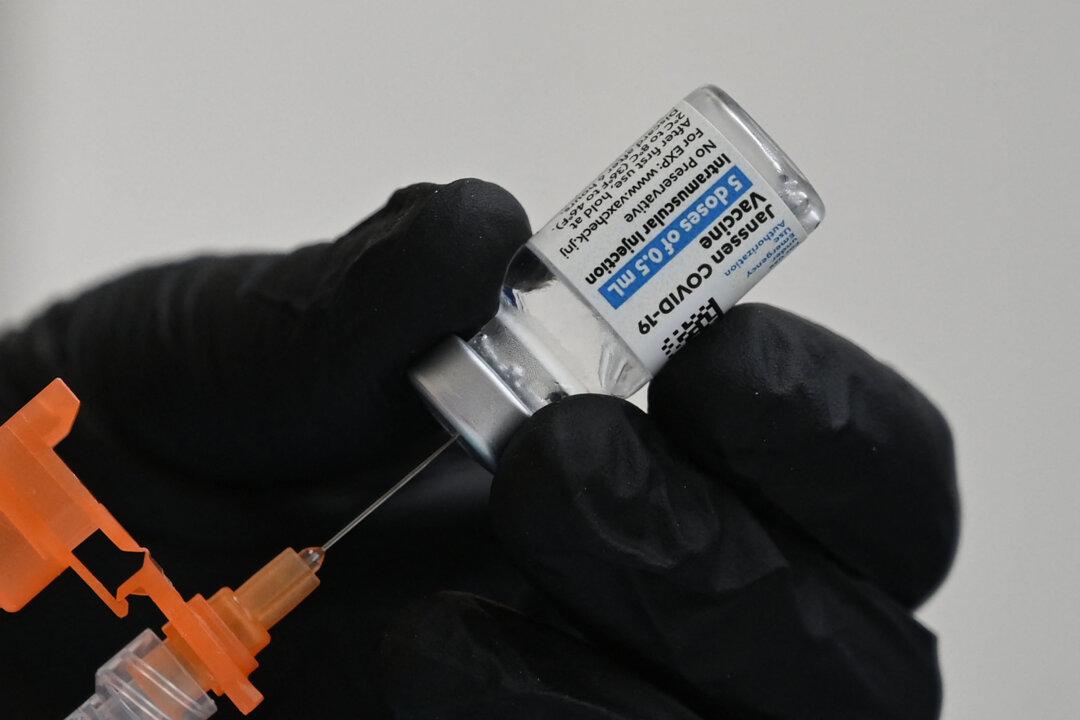A booster dose of Johnson & Johnson’s vaccine performed well in terms of protecting against hospitalization in people who contracted COVID-19 in South Africa, according to a study published Thursday.
A second study indicated that people who initially received Pfizer’s COVID-19 vaccine and got a Johnson & Johnson (J&J) booster saw a 41-fold increase in neutralizing antibody responses and a jump in T-cells within weeks.






